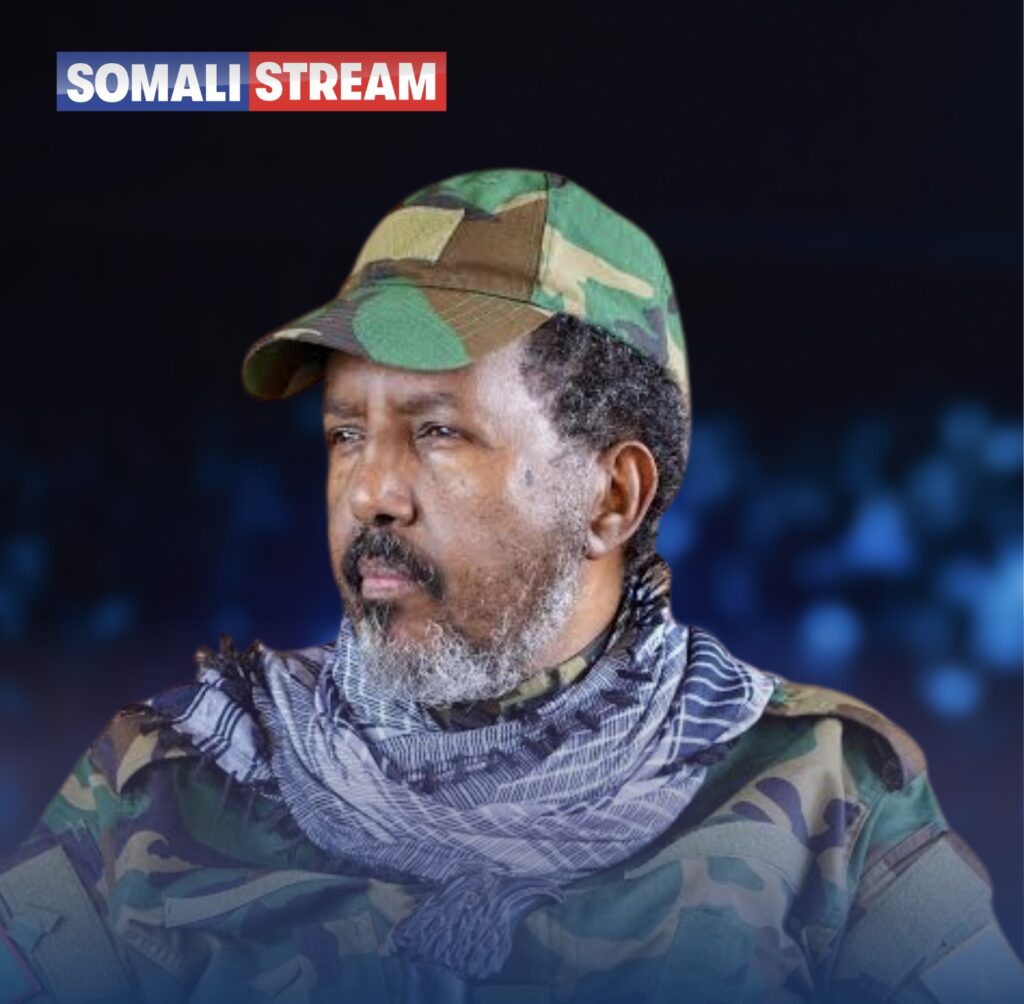In a country where political cycles often end in exile, exile in rebellion, and rebellion in regret, Hassan Sheikh Mohamud has done what no Somali leader before him has managed in both post-independence Somalia, and post-civil war: return to power through a ballot not by force, not by foreign decree, and not as a ghost of a fallen regime.
Hassan Sheikh’s reelection in May 2022 was more than a comeback. It was the culmination of a long, methodical strategy; one that redefined Somali politics not through charisma or populism, but through tactical restraint, structural manipulation, and quiet, unrelenting calculation.
To understand the current architecture of Villa Somalia, one must first understand the man who built its new foundations; not from scratch, but from the ruins of his own past.
Born in 1955 in Jalalaqsi, in the Hiran region, Hassan Sheikh Mohamud was neither a warlord’s son nor a diaspora darling. His career began in classrooms, not command posts. He taught in schools, universities, and technical institutes like Lafoole. He served under the Ministry of Education. When the Somali state collapsed in 1991, he stayed in Mogadishu.
As the country splintered under warlords and foreign-sponsored factions, Hassan Sheikh worked in civil society; an unglamorous but deeply embedded role that gave him what few others had: roots, records, and relationships.
In 2012, with the country staggering toward indirect democracy, he entered parliament and, within weeks, won the presidency. His first term was marked by the rise of Damuljadid, a circle of political newcomers seeking institutional reform in a country with barely any institutions left. He appointed technocrats like Abdi Farah Shirdoon as Prime Minister to lead the executive and pursued a governance-first strategy: building state capacity, reducing corruption, and confronting Al-Shabaab.
He survived bombings including one during a live speech and most recently in 2025. He was named to Time Magazine’s 100 Most Influential People in 2013. But by 2017, his appeal faded. He lost reelection to Mohamed Abdullahi Farmaajo, whose populist wave and nationalist tone seemed better suited to a country weary of elites.
But Hassan Sheikh wasn’t done.
After his early 2017 defeat, many assumed HSM would fade into the ranks of former statesmen dignified, distant, and diplomatically ceremonial. Instead, he retreated, observed, reorganized. Crucially, he remained in Mogadishu; while Farmaajo’s critics scattered or chose silence. He watched the opposition movements like Daljir, who had energy but lacked coordination. He saw Farmaajo’s obsession with “one person, one vote,” and correctly calculated that the initiative would fracture under pressure from Federal Member States and civil society. By 2021, with Farmaajo politically cornered, HSM pounced.
The Return: Not as a Reformer, but as a Master Tactician
Hassan Sheikh’s return to power in 2022 was historic: the first Somali president to win reelection after serving a full term. But it was not nostalgic. It was tactical. He co-opted former opponents, absorbed emerging political actors, and diffused rivals by offering them controlled proximity to power. The once-feared Daljir movement? Absorbed and neutralized. The opposition bloc that challenged Farmaajo? Fragmented with surgical delays and half-hearted dialogue offers.
Unlike Farmaajo, who ruled with confrontation, or Sharif Ahmed, who governed with consensus, HSM ruled with containment. He didn’t need to defeat enemies outright; he just needed to keep them distracted, divided, and manageable.
Strategic Appointments, Silent Strength
His appointment of Hamza Abdi Barre as Prime Minister was telling. Barre had been overlooked during HSM’s first presidency of 2012-2016. But he never defected, never criticized. That quiet loyalty paid off. As Prime Minister, Barre became HSM’s stabilizer; not a rival, not a threat.
Parliament followed suit.
The return of Sheikh Adan Madobe, a marginalized veteran, to the Speaker’s chair seemed accidental. It wasn’t. Southwest offered no strong candidates, and HSM filled the vacuum with a dependable figure who could be easily incentivized. The Deputy Speaker, Sadia Yasin Samatar, a loyalist and trusted confidante, completed the triad of executive-parliamentary control. With these pieces in place, HSM turned the legislative branch into an instrument of executive continuity. In dealing with opposition leaders and rival states, HSM’s genius has not been aggression; but paralysis.
He extends a hand, offers talks, announces dialogue; then adjourns, delays, and defers. By the time opponents realize no outcome is coming, their coalitions have eroded. Their goals; unseat HSM, are too shallow to unify them for long. He doesn’t need to win every argument; he just needs to buy time until others run out of it. Puntland, under Said Abdullahi Deni, has resisted the centralization of power. Deni, though isolated, remains the most viable threat. If he chooses to unify the opposition base, activate federalist networks, and align with a returning Farmaajo, he could present a formidable counterforce.
Mohamed Farmaajo remains silent. Deni is calculating. Sharif Sheikh Ahmed is politically diminished. And none of them not one has shown the same patience, network durability, or institutional cunning that HSM has mastered.
Hassan Sheikh Mohamud began his career as a teacher. He once told students that governance begins with consistency. Over a decade later, his career is defined by exactly that: he outlasts. He is not Somalia’s most charismatic leader. Nor its most beloved. But he is the most deliberate. Where others react to events, he shapes them. Where others rally in opposition, he embeds himself in the system. And while critics accuse him of abandoning his earlier promises of reform, HSM appears unfazed. For him, politics is not a morality play; it is a series of opportunities. And power, ultimately, is for those who can hold it.
The Final Question: So, who will stop HSM?
The opposition has slogans but no strategy. Puntland is potent but isolated. Farmaajo is nostalgic but absent. Until someone emerges who understands the machinery of Somali politics like Hassan Sheikh Mohamud who can read its fractures, pace its rhythms, and shape its narrative; Villa Somalia will remain his. For now, the teacher is still teaching. And Somalia is still learning what that means.


